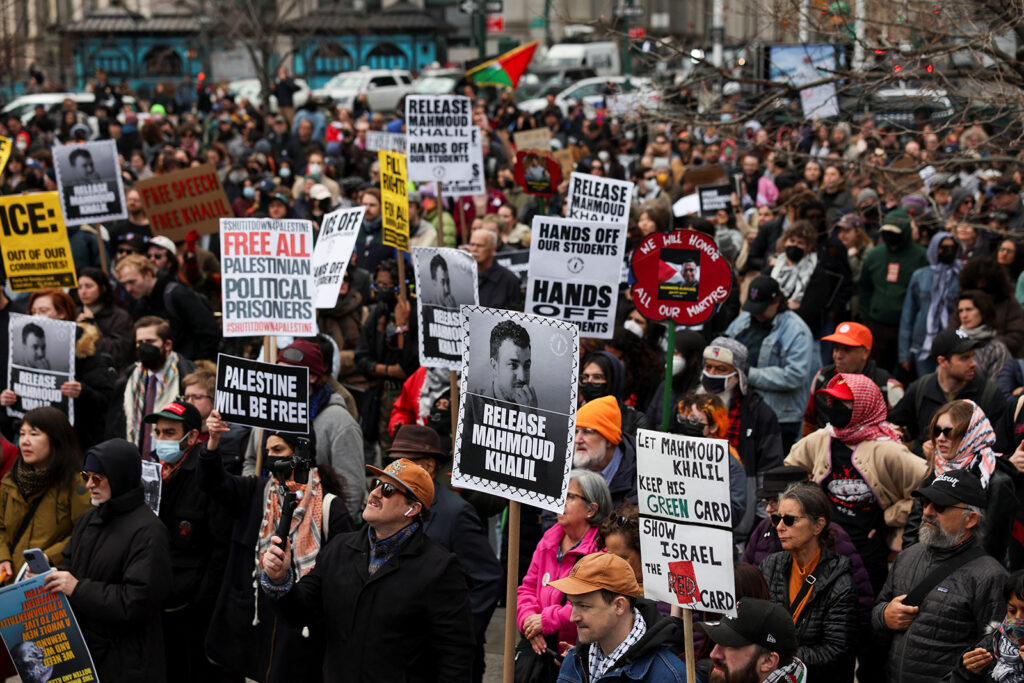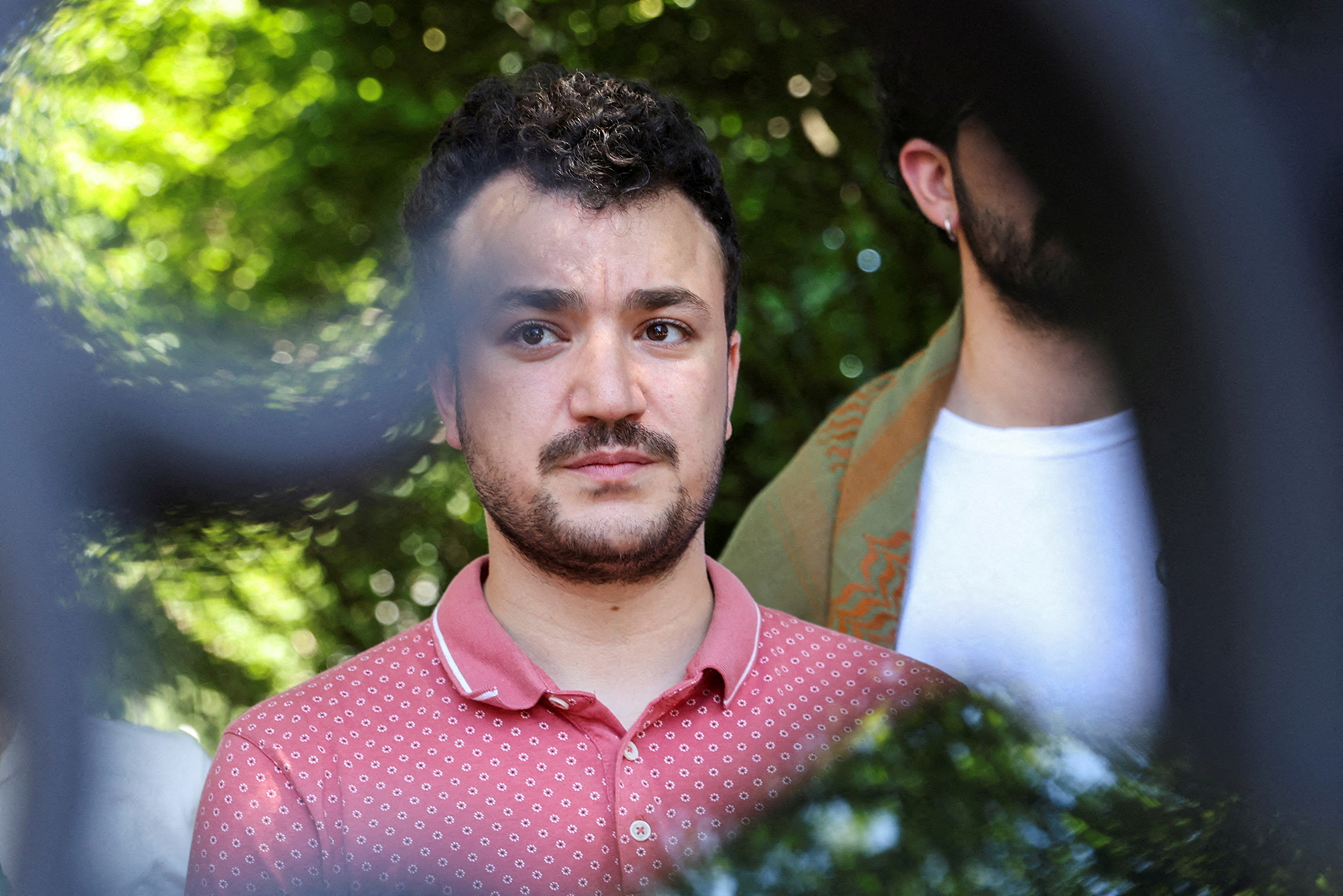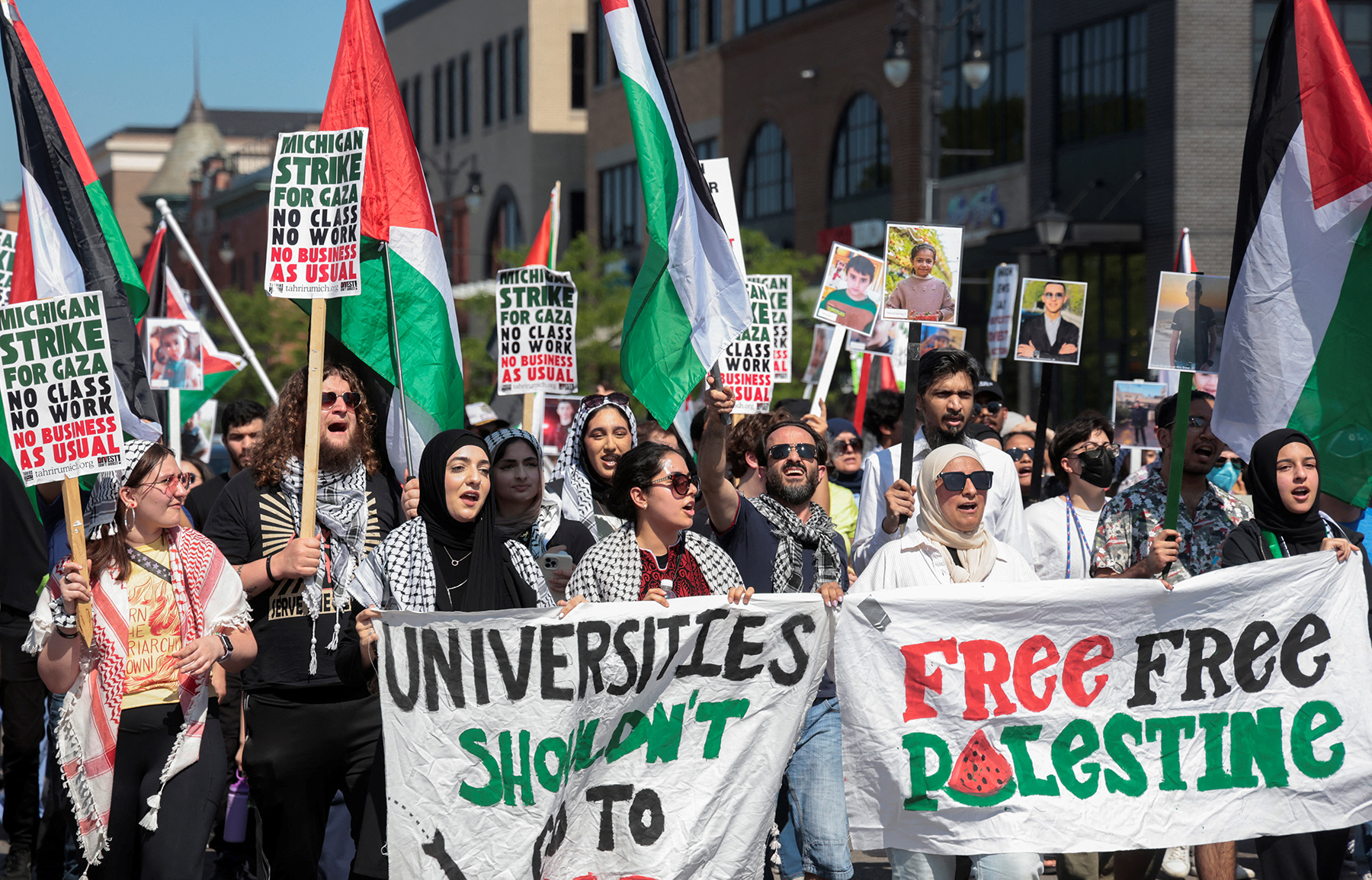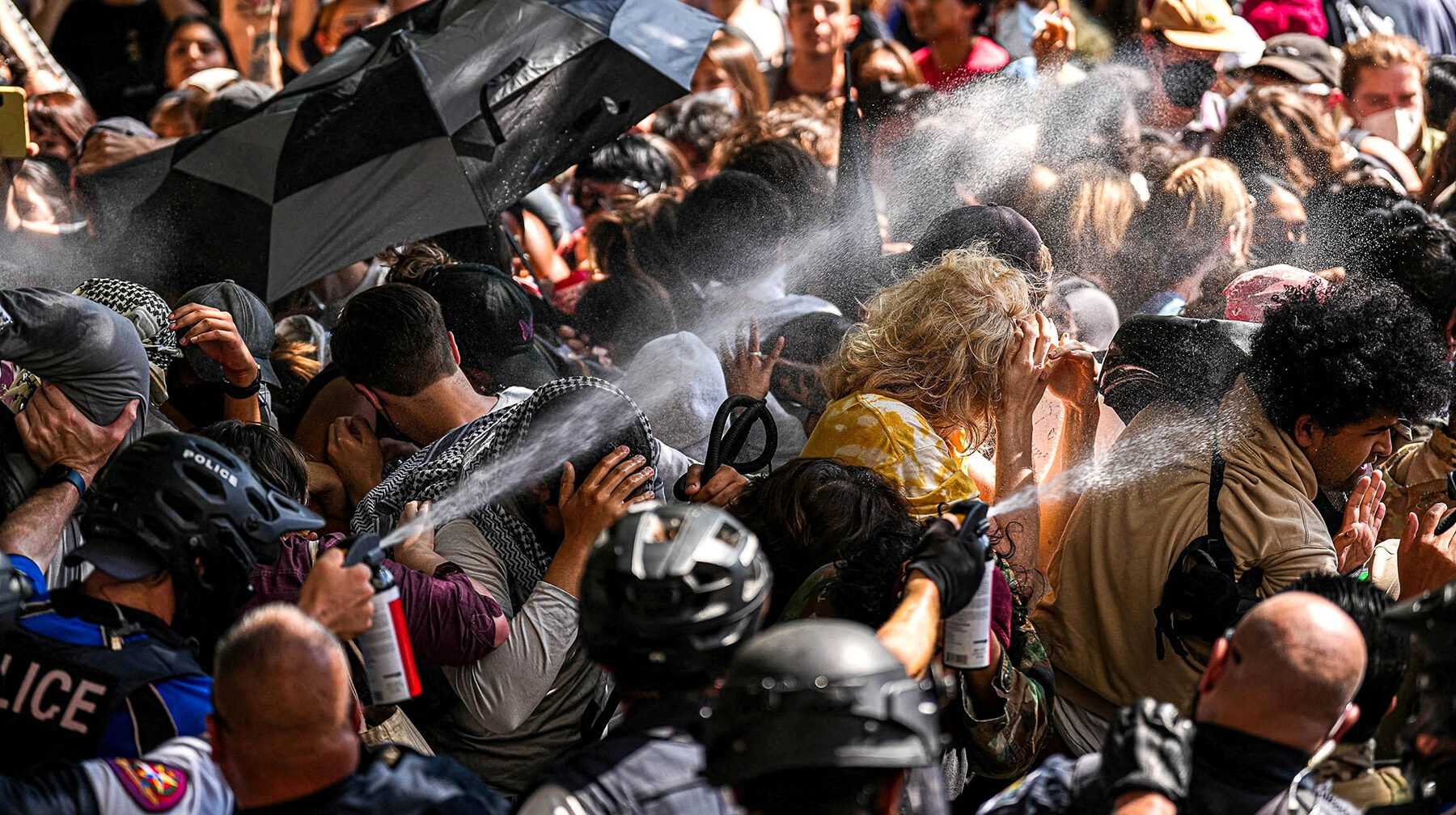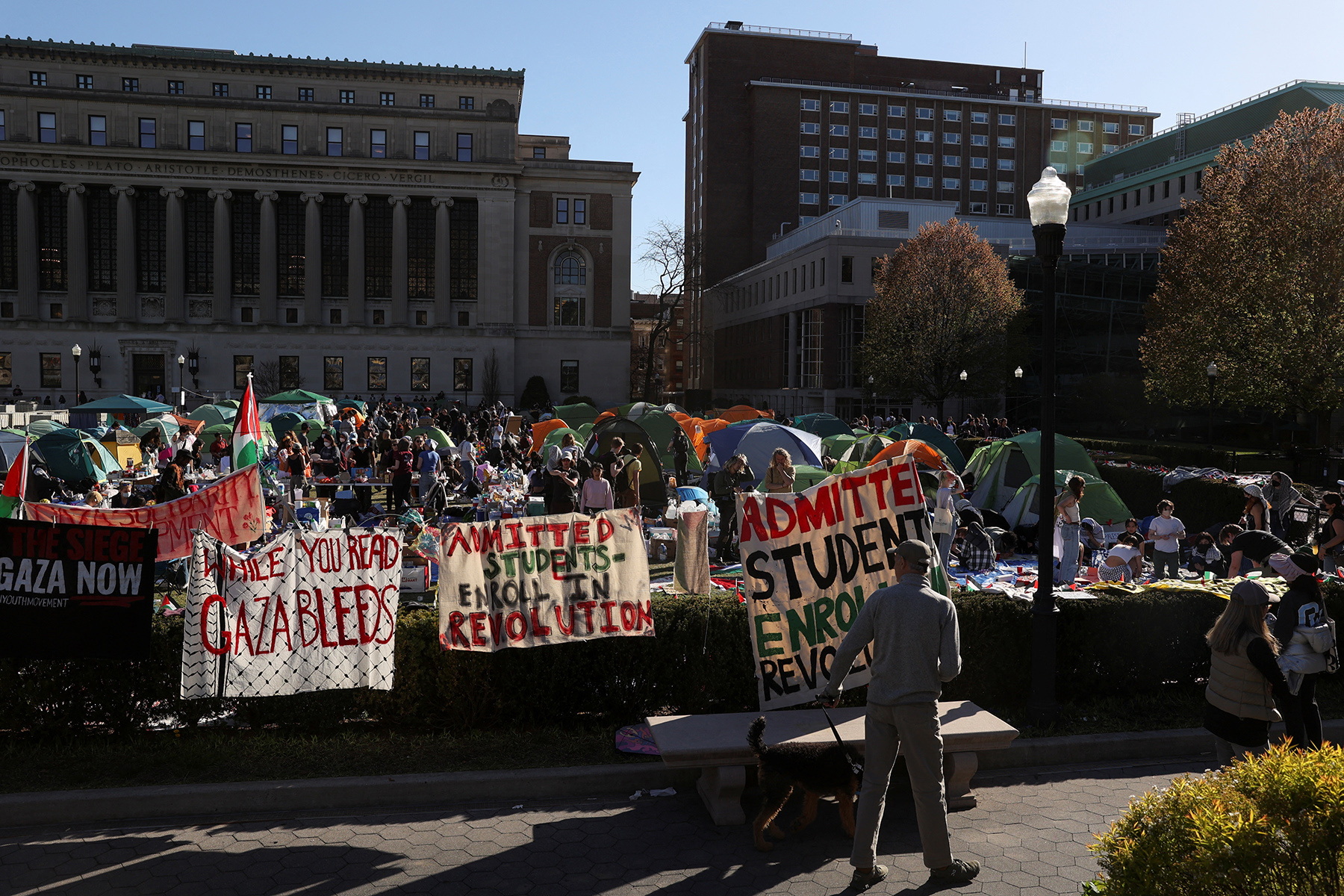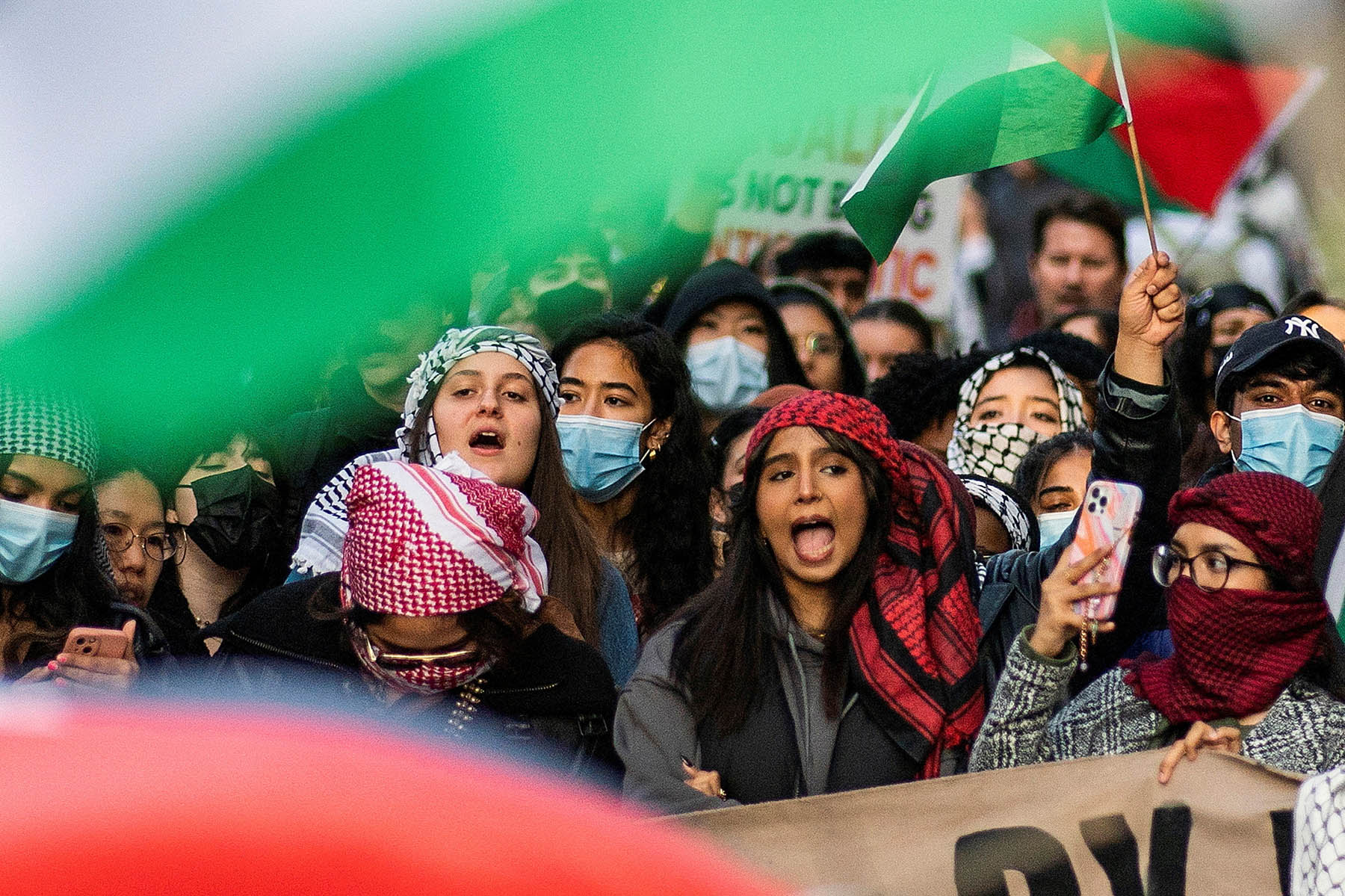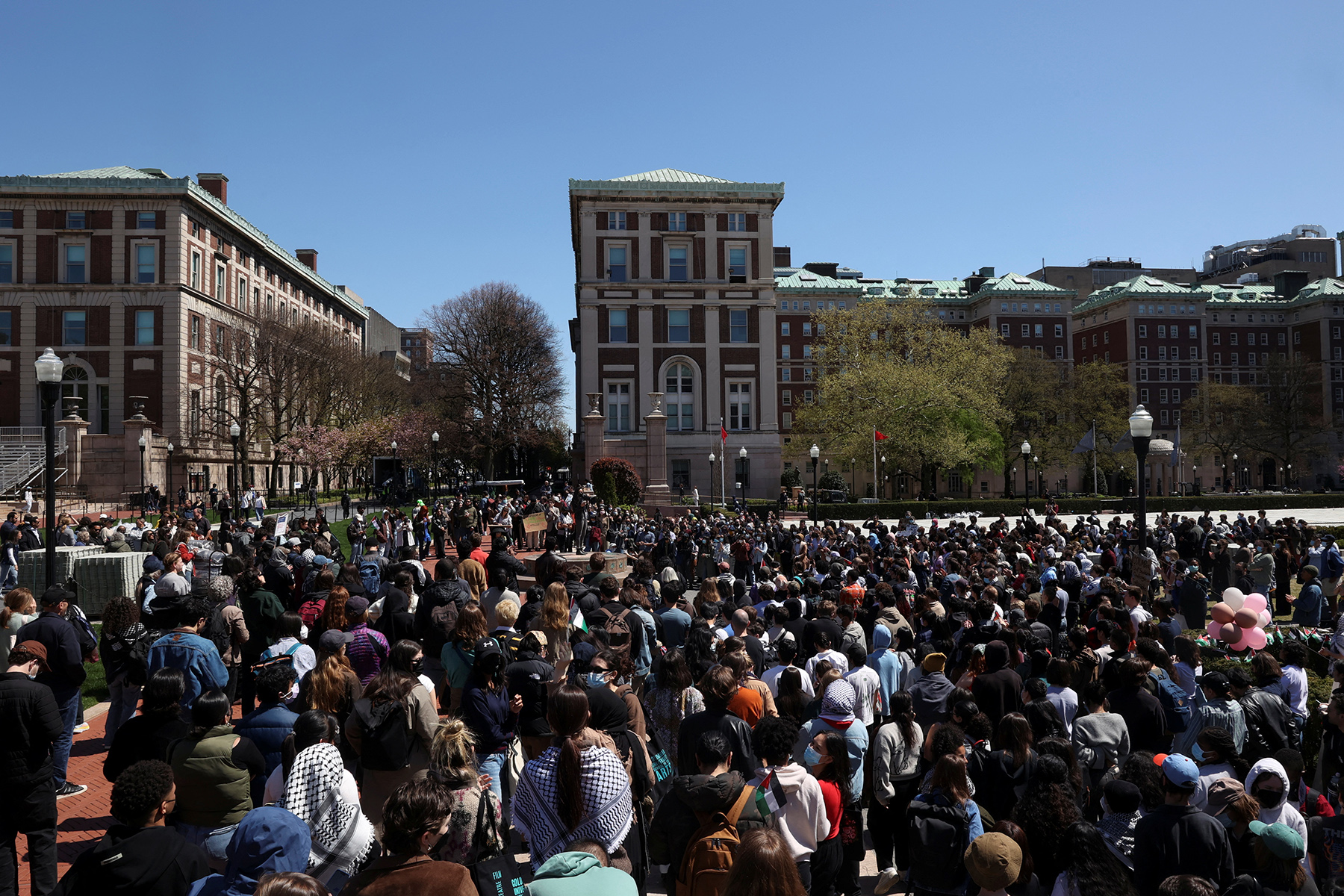Shortly after his inauguration, President Donald Trump vowed to combat antisemitism on U.S. college and university campuses, describing pro-Palestinian activists and protesters as “pro-Hamas,” and threatening to revoke their visas.
The first target of these threats was Mahmoud Khalil, a pro-Palestinian activist and former student of Columbia University, who was a negotiator for Columbia students during talks with university officials regarding their tent encampment last spring, according to The Associated Press.
Since his arrest, more than half a dozen scholars, professors, protesters and students have had their visas revoked with threats of deportation. Two opted to leave the country on their own terms, unsure of how legal proceedings against them would play out.
Free speech and civil liberties organizations have raised concerns over the arrests, claiming the Trump administration is targeting pro-Palestinian protesters for constitutionally protected political speech because of their viewpoints.
In an amicus brief filed on behalf of Khalil by the Foundation for Individual Rights and Expression (FIRE) and PEN America, among others, the groups claim the Cold War-era statute being used against Khalil violates his First Amendment rights. They claimed the Trump administration is retaliating against those who express viewpoints the administration disagrees with.
The provision of the Immigration and Nationality Act invoked against Khalil gives U.S. Secretary of State Marco Rubio the authority to “personally determine” whether a noncitizens’ admission to the U.S. “would compromise a compelling United States foreign policy interest.”
Rubio has contended that this case is not about expression.
“This is not about free speech,” Rubio said during a March 12 briefing with reporters. “This is about people that don’t have a right to be in the United States to begin with.”
The amicus brief states that Rubio “argues this power extends even to deporting permanent residents for protected speech. It does not.”
The American Civil Liberties Union (ACLU), a member of Khalil’s litigation team, has described Khalil’s “unlawful” arrest as representation of “a frightening escalation in the Trump administration’s efforts to silence speech of which they are critical.”
Other pro-Palestinian activists have filed lawsuits in attempts to avoid arrest and deportation.
Yunseo Chung, a Columbia student, filed a lawsuit claiming the Trump administration targeted her for her pro-Palestinian views. A federal judge ruled that she cannot be detained while her legal challenge is active. Momodou Taal of Cornell University was also ordered to surrender himself to Immigration and Customs Enforcement (ICE) agents following a lawsuit he filed claiming Trump’s executive order threatening the revocation of student visas of “Hamas sympathizers” violated the free speech rights of international students. Taal ultimately decided to leave the U.S. “on his own terms.”
Universities are also under pressure to better handle disciplinary processes and student harassment complaints after a federal antisemitism task force has begun reviewing university policies and funding allocations.
Columbia University, which was stripped of $400 million, subsequently agreed to changes recommended by the task force, raising free speech concerns on the federal government’s intrusion on academic freedom. In the weeks since, half of Princeton University’s federal funding was frozen by the Trump administration, and the antisemitism task force has started a “comprehensive review” of $255 million in federal grants and contracts at Harvard University.
First Amendment Watch spoke with Esha Bhandari, deputy director of the ACLU’s Speech, Privacy and Technology Project, about the First Amendment implications of the Trump administration’s alleged targeting of pro-Palestinian protesters and activists. Bhandari explained how actions taken under the Immigration and Nationality Act need to be consistent with the First Amendment, described the importance of the right to peacefully assemble, and expressed that all Americans, regardless of their viewpoint, should be concerned with the Trump administration’s actions and its chilling of speech.
Editor’s note: This interview has been edited and condensed for length and clarity.
FAW: Can engaging in protected First Amendment speech ever be used as evidence to remove a person from the country?
Bhandari: The First Amendment restricts government action, full stop. So it doesn’t matter what a statute says about different procedures that might exist for revoking visas, or even for seeking to strip someone of their lawful permanent resident status. The Immigration and Nationality Act has to be read consistent with the First Amendment. That’s a fundamental baseline principle. And there’s also another fundamental principle, which is that people who are in the United States and speaking in the United States are afforded the full protection of the First Amendment. That means that the government can’t take retaliatory action against them simply because they engaged in constitutionally protected speech. So I think there’s been a lot of discussion, perhaps, about the technicalities of when you can revoke visas. When can you take immigration enforcement action against people? But I think those miss the bigger picture point, which is that the government can’t take any punitive action against someone in retaliation for their speech. Because the danger there, which the First Amendment is designed to protect against, is that government power will be used selectively to suppress certain viewpoints. They’ll only revoke visas from people who say and do certain things. They’ll only seek to put people in immigration detention who say certain things. And it’s that viewpoint suppression and viewpoint-based discrimination that the First Amendment very strongly protects against.
FAW: What if protest involves things that are not protected by the First Amendment, such as disruptions of classrooms, takeover of buildings, blocking of entrances and exits of buildings, encampments, harassment, true threats, etc.? If a student engages in these types of speech or activities, can they be removed from the country?
Bhandari: There’s two separate questions here. One is, what speech is not constitutionally protected and can be regulated? And regulation, by the way, doesn’t necessarily mean that the consequence of that is that you’re deported or that you’re put in prison and convicted of a crime, because there’s speech that can be regulated in certain contexts, like in universities, which doesn’t necessarily mean that the consequences of violating university rules would be that you’d be convicted of a crime or deported. Universities, particularly private universities, can set certain rules around speech and what is permissible protest activity, and violations of those rules might be disciplined through school disciplinary processes and other academic consequences. But that doesn’t automatically mean that someone becomes deportable, because there are, generally speaking, certain requirements that would render you subject to removal, including conviction for certain serious crimes if you’re a lawful permanent resident. But I think the bigger picture question is, what about protests that don’t just involve constitutionally protected speech? And again, absolutely, those can be regulated. Those can subject people to discipline. Schools do have an obligation to provide a learning environment that’s free of harassment, and so if there’s harassment of students that’s happening, schools have to act. But again I think what we’re seeing here is that the government isn’t attempting to narrowly parse out people who may have engaged in certain criminal conduct that might render them deportable simply because it’s criminal and not constitutionally protected speech. That is not the policy that the government has announced. What they’ve said is, “We’re hostile to these protests, we don’t like the viewpoints they express,” and the government describes this as “pro-Hamas,” but in other statements, they’ve made it clear that any pro-Palestinian viewpoint they consider to be pro-Hamas, and that, of course, comprises a whole host of constitutionally protected speech. And they said if you participated in those protests, even if you all you did was engage in constitutionally protected protests and speech, you will be subject to this policy of having your visa revoked, or if you’re a lawful, permanent resident, being placed in detention and having the government attempting to strip you of your green card status. So they’re not actually taking the scalpel approach, which would actually look to see if there were crimes committed, if people were convicted of certain crimes, and then taking immigration enforcement action only on the basis of that. And that, I think, is very telling, that they’re not taking that approach. They are, in fact, directly targeting the speech that is protected.
I think implicit in the administration announced policy of going after student protesters is this idea of guilt by association, and the suggestion that if you’re part of a big tent protest movement, or if you’re at a protest and you engage in perfectly constitutionally protected speech, but some other people at that protest, or some other people in this larger movement engage in activity that’s unlawful that you somehow can be punished for that. And that is guilt by association that violates our fundamental notions of due process in the country, that people should not be punished for the acts that they’re not responsible for. And I think what’s particularly pernicious about this notion is that if what the government’s saying is, “If you attend a protest in which anyone else at the protest does something unlawful you are responsible for that.” Well, then the right to protest doesn’t really exist in actuality, right? Because who could ever join a protest? Who could ever participate in a protest movement knowing that you could be held responsible for the actions of anybody else who’s associated with that movement? If that is the rule, if that is the standard that becomes accepted, then essentially, the right to protest goes away, because nobody could ever go to a protest and be confident that they could be responsible for the activities of everyone else there.
